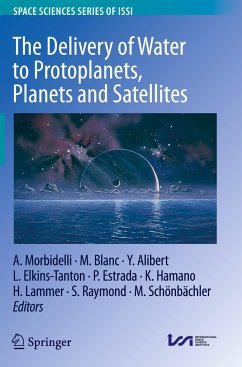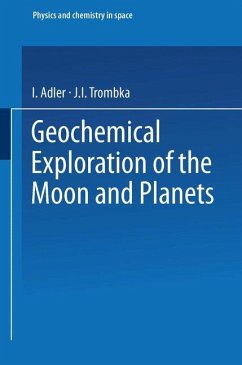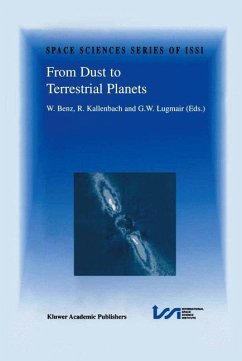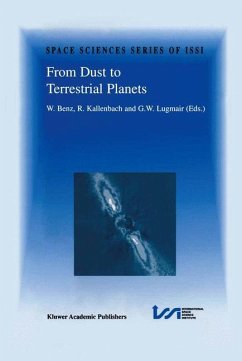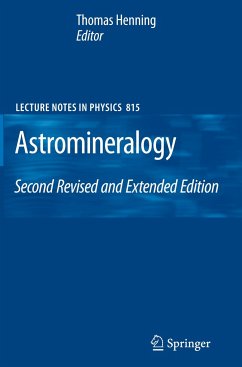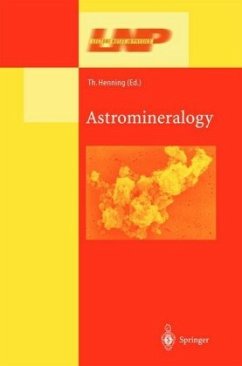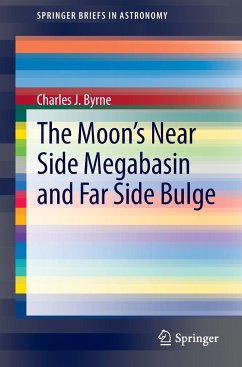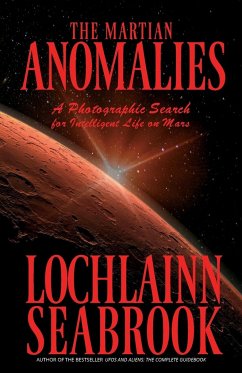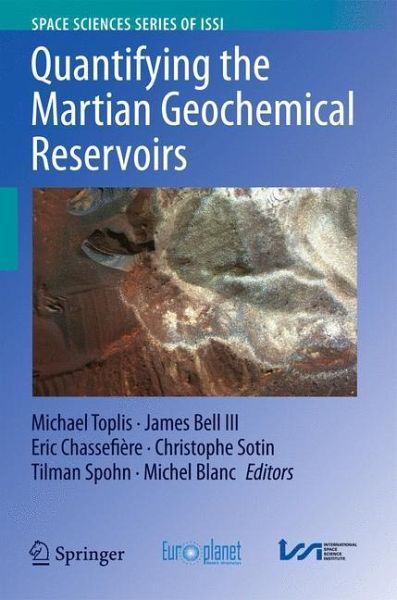
Quantifying the Martian Geochemical Reservoirs
Versandkostenfrei!
Versandfertig in 1-2 Wochen
115,99 €
inkl. MwSt.

PAYBACK Punkte
58 °P sammeln!
Over the last fifteen years, space-based exploration of the solar system has increased dramatically, with more and more sophisticated orbiters and landers being sent to Mars. This intense period, rich in unprecedented scientific results, has led to immense progress in our perception of Mars and of its evolution over geological time. In parallel, advances in numerical simulations and laboratory experiments also shed new light on the geochemical evolution of the planet Mars. The ISSI-Europlanet Workshop entitled "Quantifying the Martian Geochemical Reservoirs" was held in Bern in April 2011 with...
Over the last fifteen years, space-based exploration of the solar system has increased dramatically, with more and more sophisticated orbiters and landers being sent to Mars. This intense period, rich in unprecedented scientific results, has led to immense progress in our perception of Mars and of its evolution over geological time. In parallel, advances in numerical simulations and laboratory experiments also shed new light on the geochemical evolution of the planet Mars.
The ISSI-Europlanet Workshop entitled "Quantifying the Martian Geochemical Reservoirs" was held in Bern in April 2011 with the objective to create a diverse interdisciplinary forum composed of scientists directly involved in space-based exploration of the Martian surface, meteoriticists studying SNC meteorites, and planetary and/or Earth scientists simulating, numerically or experimentally, the physical and chemical processes occurring on or within Mars. The chapters of this book provide an overview of current knowledge of the past and present Martian geochemical reservoirs, from the accretionary history to the secondary alteration processes at the surface. In addition to the detailed description of data from Mars and the methods used to obtain them, the contributions also emphasize comparison with features on Earth, providing a perspective on the extent to which our knowledge of terrestrial systems influences interpretation of data from Mars. Areas that would benefit from future work and measurements are also identified, providing a view of the short-term and long-term future of the study of Mars.
This collection of chapters constitutes a timely perspective on current knowledge and thinking concerning the geochemical evolution of Mars, providing context and a valuable reference point for even more exciting future discoveries. It is aimed at graduate students and researchers active in geochemistry and space science. Previouslypublished in Space Science Reviews, Vol. 174/1-4, 2013.
The ISSI-Europlanet Workshop entitled "Quantifying the Martian Geochemical Reservoirs" was held in Bern in April 2011 with the objective to create a diverse interdisciplinary forum composed of scientists directly involved in space-based exploration of the Martian surface, meteoriticists studying SNC meteorites, and planetary and/or Earth scientists simulating, numerically or experimentally, the physical and chemical processes occurring on or within Mars. The chapters of this book provide an overview of current knowledge of the past and present Martian geochemical reservoirs, from the accretionary history to the secondary alteration processes at the surface. In addition to the detailed description of data from Mars and the methods used to obtain them, the contributions also emphasize comparison with features on Earth, providing a perspective on the extent to which our knowledge of terrestrial systems influences interpretation of data from Mars. Areas that would benefit from future work and measurements are also identified, providing a view of the short-term and long-term future of the study of Mars.
This collection of chapters constitutes a timely perspective on current knowledge and thinking concerning the geochemical evolution of Mars, providing context and a valuable reference point for even more exciting future discoveries. It is aimed at graduate students and researchers active in geochemistry and space science. Previouslypublished in Space Science Reviews, Vol. 174/1-4, 2013.





